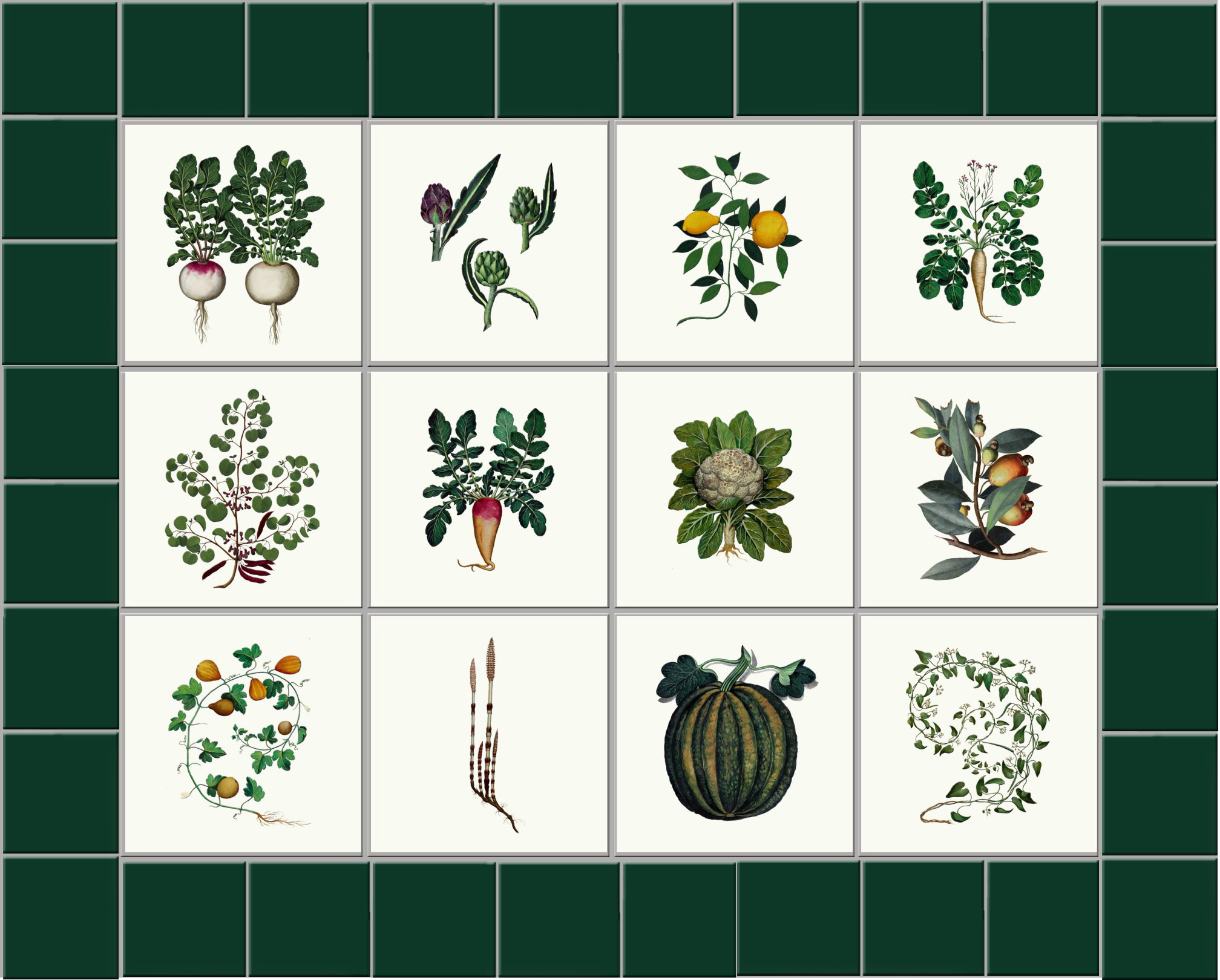
Medieval Herbs and Vegetables, tiles for kitchen backsplash
Morris De Morgan Arts & Crafts Pre-Raphaelite Victorian Medieval

Morris De Morgan Arts & Crafts Pre-Raphaelite Victorian Medieval
Medieval Gardens Bestiary Catalog How to Order Tile Site Map Search Contact

Large or small, the garden should be orderly and rich. It should be well fenced from the outside world. It should by no means imitate either the willfulness or the wildness of nature, but should look like a thing never to be seen except near the house. It should, in fact, look like part of the house. ~William Morris
Example backsplash design with six-inch medieval garden tiles and three-inch field tiles.*

*Glossy green, as well as field tiles in other colors, are available at most tile store, or big big box stores. Usually, without special order. I suggest waiting until you get your medieval kitchen tiles and taking one with you to the tile store to pick a field tile that you like.
Kitchen tiles are available on ceramic or tumbled stone.

Cauliflower

Small Squash Vine

Cashew

Rodia

Asparagus

Rosemary

Parsnip

Pumpkin

Lemon

Red Beans

Artichoke

Mushrooms

Radishes

Gourd Squash

Morning Glory Vine

Apios

Sunflower

Turnip

Available in both 4 and 6 inch tiles.
Size: 6 inch square tiles (15.4 cm), or 4 inch (10.16 cm)
Tumbled Tiles (all sizes): $77 each
Tumbled is, well tumbled, and varies with what I'm sent when I order blanks but it *can* be modified a bit; some have more veining and "character" than others. For ceramic, I have two cream background colors: whipped cream (closest to blue-white) which is what you'll want if you intend to try to match generic subway tile. Bear in mind that there are a thousand different whites and even if they are exactly the same, the reflective nature of glossy tile and the ambient lighting will almost guarantee the match isn't exact. The other option, and my personal preference, is creme fraiche (whipped butter). Creme fraiche is not the yellow of your store-bought butter but has a richer color than whipped cream. At first, it looks white, but if you hold a piece of copy paper against it, you will see just how blue it isn't.



There are many varieties of medieval gardens, so you have a lot of room for creativity. Here are some guidelines:
Medieval gardens are sanctuaries, as if an outside room of the house. Start with a square or rectangular space.
Create a border. Permanent borders can be hedges or walls. At Red House, the border was created with trellises. You can also use fruit trees or topiary to create your borders. Italian cypress works well if you need a wind break. Roses also work. At Kelmscott Manor, Morris used a border of standard roses to line the walkway to the entrance of the house.
A fountain, or waterfall at the center or the garden is traditional. You can also use statuary that suggests water, or a stone bird bath.
Create your walkways. You might create a circular center walkway around fountain with short walkways leading up to it. Or lay the garden out like a chess board.
You now have several areas. Medieval kitchen gardens grew herbs for both cooking and their medical / magical properties, but these it is difficult to keep these distinctions separate. Organize your planting by the needs of the plant with sun-loving plants together and so forth, with the tallest plants toward the back of each bed.